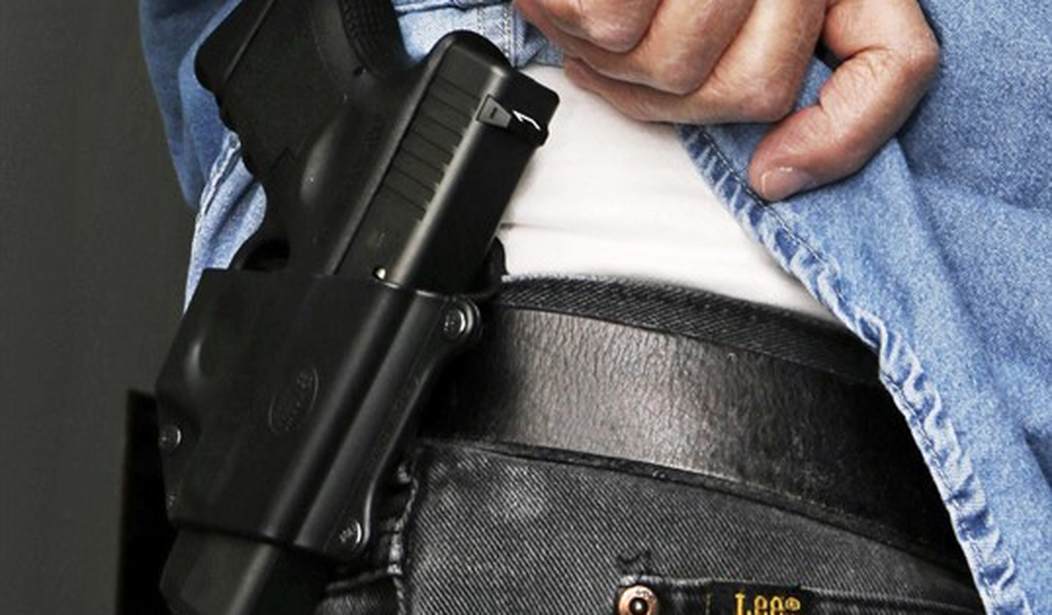State legislative races don’t receive nearly as much attention as their federal counterparts do, but as Second Amendment advocates know all too well there’s generally far more activity in statehouses than Congress when it comes to gun control and pro-2A bills, and those of us who support the right to keep and bear arms can’t ignore the importance of these seats in next week’s midterms. Florida Gov. Ron DeSantis, for instance, has pledged to get behind a push for permitless carry, but he’s going to need the help of Florida legislators to get the bill across the finish line (a permitless carry bill introduced last year didn’t even receive a committee hearing).
Meanwhile, in the state of North Carolina, the GOP is hoping to add enough new members to the state legislature that Republicans can override any vetoes by Democratic Gov. Roy Cooper, and they could very well pull it off given the handful of seats needed for a veto-proof majority.
Three of the elections underway in Cumberland County could decide the future of North Carolina on controversial issues, including abortion, gun laws, tax cuts, government funding of private schools, and the governor’s power during states of emergency.
These three competitive races — two for the North Carolina Senate and one for the North Carolina House of Representatives — will help decide whether Democratic Gov. Roy Cooper will retain his power to veto the decisions of the legislature’s Republican majority.
If the Republicans win back the supermajorities they enjoyed through 2018, they can again roll over the Democrats on those and other hot-button issues as they did before.
… In the 120-member state House, the Republicans have 69 seats. They need to pick up three more to reach 72 seats — the minimum needed for a supermajority to override Cooper’s ability to check-and-balance the lawmakers with the veto stamp.
In the 50-member state Senate, the Republicans have 28 seats and need two more to regain their supermajority in that chamber.
If Republicans are able to claw back a supermajority, North Carolinians may finally be able to get rid of one of the last remaining vestiges of the Jim Crow-era that is still a part of state law: a requirement that anyone wanting to purchase a handgun first receive permission and a permit to do so from their local sheriff.
Last year Republicans approved a bill to repeal the law, which was put on the books in the early 1900s, but the measure was vetoed by Cooper, who called on lawmakers to pass more restrictions on the right to keep and bear arms instead.
“Gun permit laws reduce gun homicides and suicides and reduce the availability of guns for criminal activity,” Cooper said in a news release Monday. “At a time of rising gun violence, we cannot afford to repeal a system that works to save lives. The legislature should focus on combating gun violence instead of making it easier for guns to end up in the wrong hands.”
Bill supporters said the current process, in which a sheriff performs state and national background checks, evaluates an applicant’s character and ensures the gun will be used lawfully, has become duplicative with the comprehensive national checks that licensed gun dealers must conduct. The North Carolina Sheriffs’ Association backed the repeal this year after opposing it previously.
There are a lot of issues with the permit-to-purchase law, including the fact that county sheriffs have been sued for taking months to process pistol purchase permit applications, which in turn forces law-abiding citizens to either wait for an indeterminate amount of time before exercising a fundamental right or breaking North Carolina law by obtaining a handgun without first getting the green light from their local sheriff. But even if the system is running smoothly its still plagued by one underlying flaw: the subjective power given to sheriffs to decide who can exercise their right to own a handgun has led to black applicants being denied far more frequently than their white counterparts. As attorney Nicholas Gallo wrote in the North Carolina Law Review last year:
Such a system directly implicates the core of the Second Amendment by posing a direct burden on the ability of one to acquire a handgun for possession in the home. Under the modern two-part test for the Second Amendment, the permitting system falls short of satisfying strict scrutiny, as well as intermediate scrutiny. In addition, the permitting system faces difficulties in the face of the Fourteenth Amendment.
As a whole, the system is largely redundant with federal law, adding cost, time, and frustration for handgun purchasers. Furthermore, the permitting system is ripe for abuse by allowing denials for subjective “good cause.” This subjective criteria for denial is suspect since Black applicants are rejected at a rate near three times as high as White applicants. Finally, when compared to states without the permitting requirement, North Carolina’s crime rates are within a few percentage points of theirs, indicating that the permitting system is not sensible policy.
For his research, Gallo looked specifically at the permit-to-purchase applications in Wake County and found that while nearly 9% of applications from white residents were denied, nearly 25% of applications from black residents were turned down. Under the permit-to-purchase law sheriffs have broad discretion to decide if someone has the “good moral character” to own a handgun, even if they’re free and clear to purchase a shotgun or rifle under state and federal law.
It’s possible, of course, that the permit-to-purchase law could go away thanks to a court challenge, but it would be a much easier (and faster) process to repeal the measure through an act of the legislature. A red wave election could very well give Republicans the numbers they need to get rid of this Jim Crow-era gun control law and put the right to keep and bear arms back where it belongs; in the hands of we the people, not the subjective authority of county sheriffs.









Join the conversation as a VIP Member